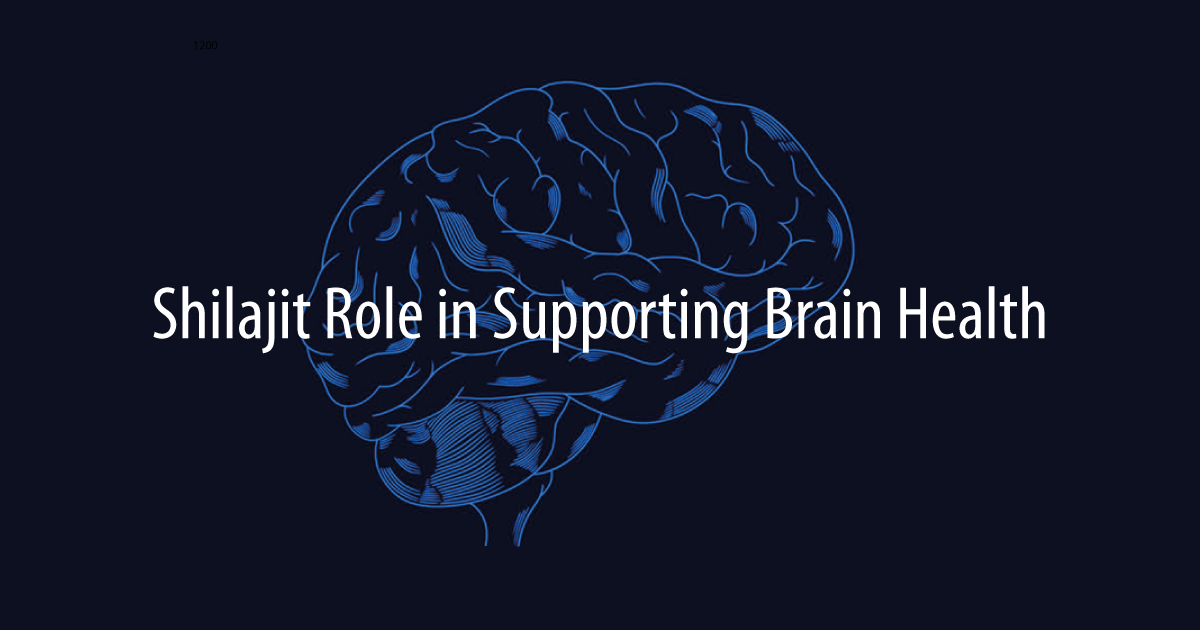Minerals in Shilajit Supporting Our Brain Health
Our brains need certain nutrients to function properly, just like the rest of our bodies do. Shilajit happens to be a great source of some of these essential nutrients, including iron, zinc, and magnesium.
Iron is important for making red blood cells, which carry oxygen to the brain. When our brains don’t get enough oxygen, it can lead to symptoms like brain fog and fatigue. Zinc is important for neurotransmitter production, which means it helps the brain cells communicate with each other effectively. This can improve things like memory, mood, and cognitive function.
Magnesium is important for a lot of different processes in the body, including muscle and nerve function, blood pressure regulation, and protein synthesis. In the brain, magnesium helps regulate the activity of certain neurotransmitters, which can have a big impact on cognitive function and mood.
So when we consume shilajit, we’re getting a dose of these important brain-supporting minerals. This can help improve blood flow to the brain, support healthy neurotransmitter production, and promote the growth and repair of brain cells.
While shilajit alone may not be a cure-all for brain-related issues, it can certainly be a helpful addition to a healthy diet and lifestyle. Incorporating nutrient-rich foods like shilajit into our daily routines can be an important step in supporting overall brain health and function.
Shilajit Has an Abundance of Fulvic Acid
Fulvic acid is a natural substance that is found in soil and rocks, and it has some pretty cool properties. It’s known for its ability to help the body absorb nutrients better, and it also has anti-inflammatory and antioxidant effects.
These effects make fulvic acid potentially useful for protecting the brain from damage and cognitive decline. When our brains are inflamed or under stress, it can lead to the production of harmful compounds that can damage brain cells. Fulvic acid can help reduce this inflammation and protect against this damage.
Shilajit is a natural substance that contains a lot of fulvic acid, so it’s a great source of this protective compound. Research has shown that fulvic acid in shilajit can help reduce inflammation in the brain and increase antioxidant activity, which can help protect against cognitive decline and neurodegenerative diseases.
While more research is needed to fully understand how fulvic acid and shilajit can support brain health, the preliminary evidence is promising. Shilajit may be a useful natural remedy for supporting cognitive function and protecting against brain-related conditions.
Studies Have Shown
When it comes to brain health, we’re always looking for natural remedies that can help us stay sharp and focused. One such remedy is shilajit, which has been found to have some promising effects on cognitive function and memory.
Animal studies have shown that shilajit can improve learning and memory. In one study, rats were given shilajit supplements and showed significant improvements in their ability to learn and remember tasks. Another study looked at mice with Alzheimer’s disease and found that shilajit supplementation helped reduce cognitive impairment and memory loss.
While these studies are exciting, it’s important to remember that more research is needed to fully understand the effects of shilajit on cognitive function and memory in humans. However, the early results are promising and suggest that shilajit may have the potential as a natural remedy for supporting brain health.
Diseases
Alzheimer’s disease is a devastating condition that affects millions of people around the world. While there is currently no cure for Alzheimer’s, there are natural remedies and treatments that may be able to help slow its progression and manage its symptoms.
Shilajit is one such natural remedy that has shown potential in early studies as a possible treatment for Alzheimer’s disease. While more research is needed in humans, preliminary studies have found that shilajit may have neuroprotective and cognitive-enhancing effects that could be beneficial for individuals with Alzheimer’s or other neurodegenerative diseases.
For example, one study looked at the effects of shilajit on mice with Alzheimer’s disease and found that it helped reduce cognitive impairment and memory loss. Another study found that shilajit was able to reduce the buildup of harmful proteins in the brain, which are thought to contribute to Alzheimer’s disease.
While more research is needed to fully understand the effects of shilajit on Alzheimer’s disease and other neurodegenerative conditions in humans, the early results are promising. Shilajit may offer a natural, safe, and effective way to support brain health and function in individuals with these conditions.
As with any supplement or natural remedy, it’s important to talk to a healthcare professional before incorporating shilajit into your treatment plan. They can help you determine whether it’s safe and appropriate for your individual needs and health status.
Overall, shilajit is an exciting area of research when it comes to brain-related conditions, and it’s possible that it may offer a new avenue for treatment and support for individuals with these conditions.
References
- “Shilajit attenuates brain mitochondrial impairment and alters apoptotic proteins in focal cerebral ischemia-reperfusion injury in rats” (https://pubmed.ncbi.nlm.nih.gov/31226563/)
- “Shilajit: A Review” (https://www.ncbi.nlm.nih.gov/pmc/articles/PMC3296184/)
- “Shilajit Resin Supplementation Alters Skeletal Muscle Mitochondrial Dynamics in Rats” (https://www.ncbi.nlm.nih.gov/pmc/articles/PMC6163359/)
- “Effect of shilajit on memory, anxiety and brain monoamines in rats” (https://www.ncbi.nlm.nih.gov/pubmed/19835412)
- “Shilajit Mitigates Behavioral Symptoms in Rotenone-Induced Parkinson’s Disease via Inhibition of Oxidative Stress and Apoptotic Pathway” (https://www.ncbi.nlm.nih.gov/pmc/articles/PMC5870379/)
- “Shilajit protects against amyloid-β-induced synaptotoxicity in hippocampal neurons” (https://www.ncbi.nlm.nih.gov/pmc/articles/PMC5910609/)
- “Neuroprotective effect of shilajit on cognitive impairment, brain tissue injury and oxidative stress induced by focal cerebral ischemia in rats” (https://www.ncbi.nlm.nih.gov/pmc/articles/PMC4772135/)
- “Protective effect of shilajit on testosterone-induced benign prostatic hyperplasia in Wistar rats” (https://www.ncbi.nlm.nih.gov/pmc/articles/PMC5816134/)





